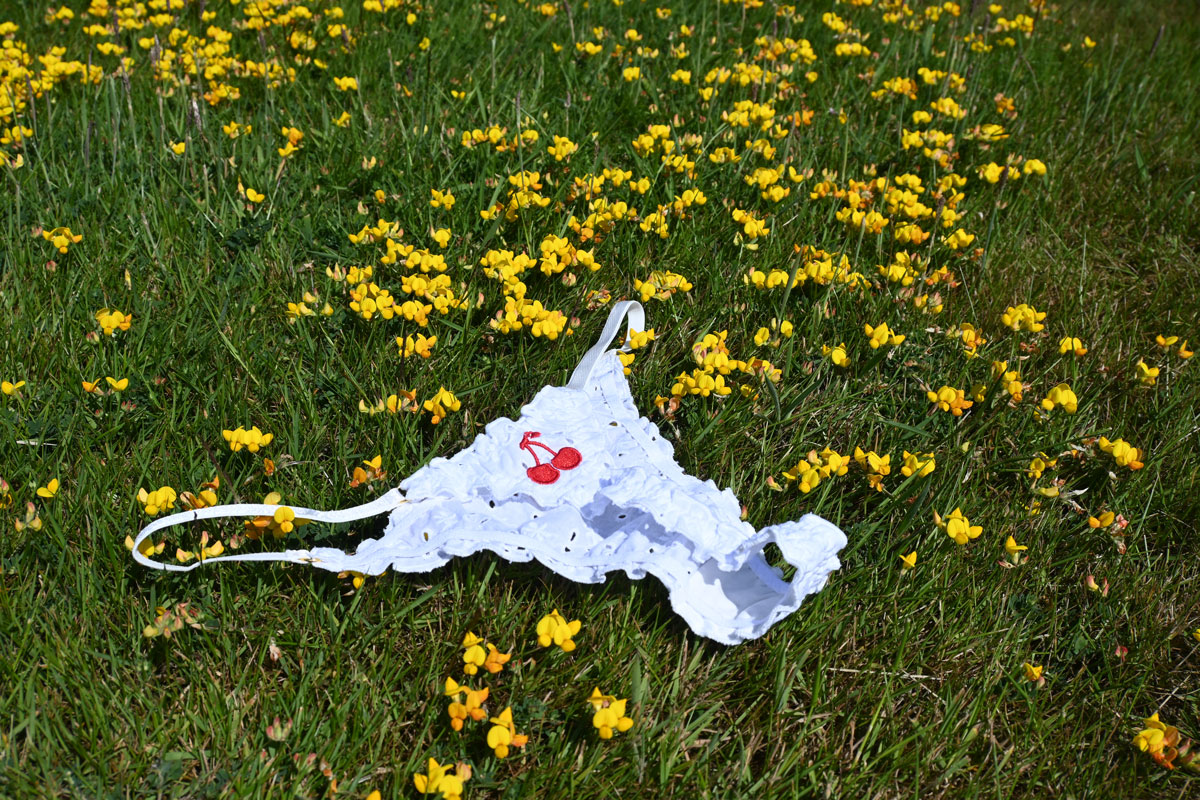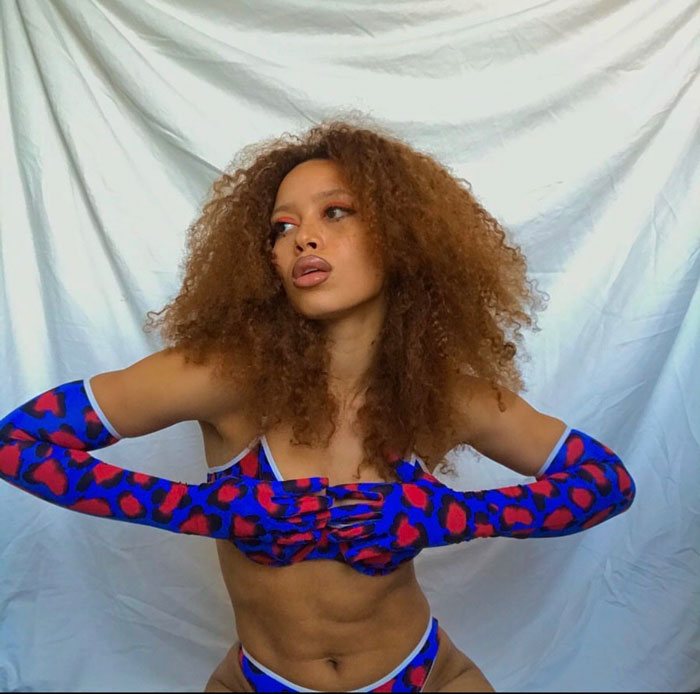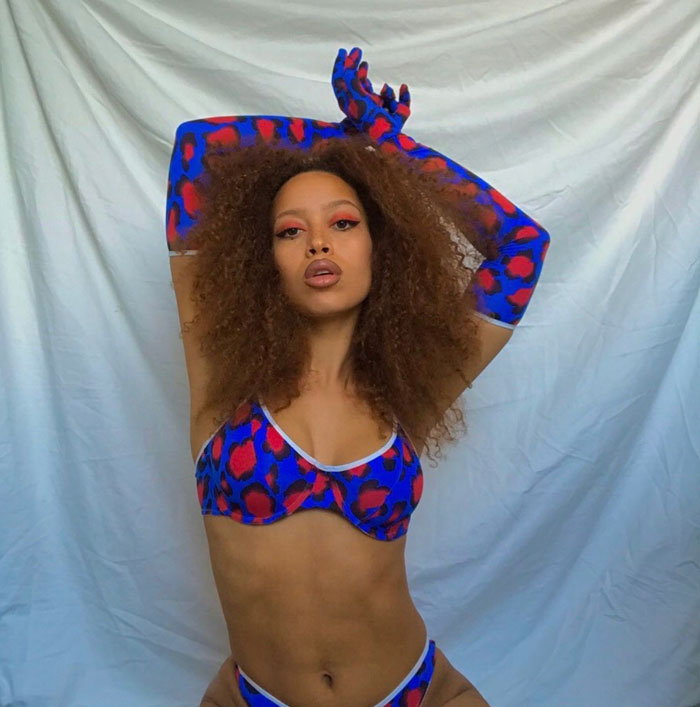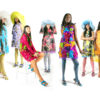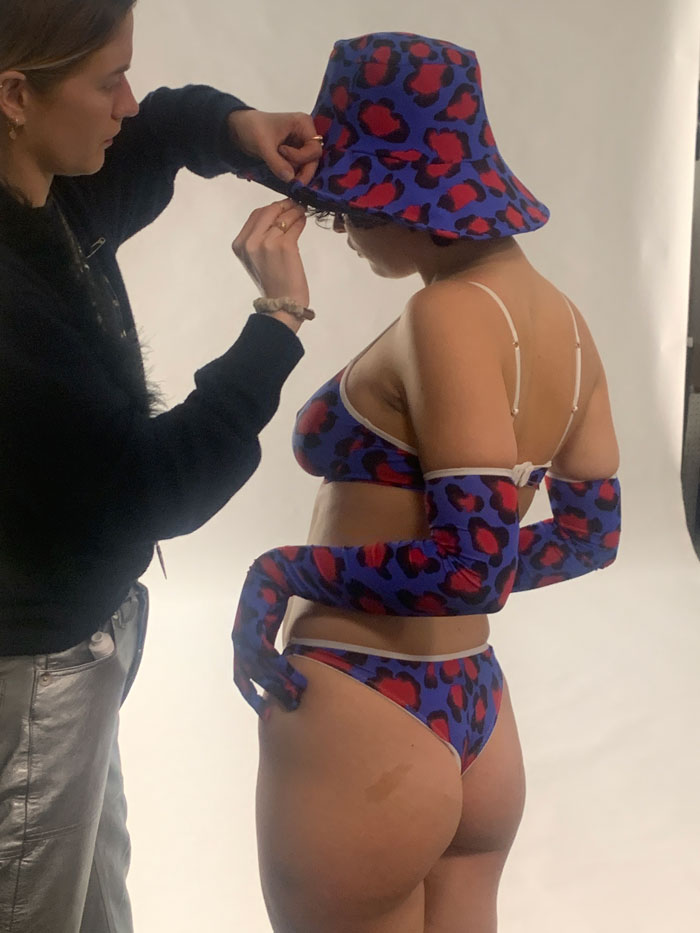Isabel contacted the Fruity Booty co-founders on email and found them doing well as lockdown eased in London.
All the images are courtesy of Fruity Booty.
After speaking to Erba the Label, this designer series led me to talking with Hattie and Minna of Fruity Booty, a brand that Amalia Grierson of Erba has long admired. Since launching in 2017, Fruity Booty has become a leader among sustainable lingerie brands simply because they believe sustainability can be sexy. The East London-based label has consistently refused to play into expectations of both lingerie and sustainable brands. They design everything in London and produce their pieces using surplus fabrics across three locations: a small factory in Porto, Portugal, their London studio, and seamstresses in Nottinghamshire.
Since the beginning, they’ve championed authenticity when producing their imagery. I was lucky enough to chat to Hattie and Minna when they launched Fruity Booty and have loved having the opportunity to re-connect with them and catch up on their evolution as a business. I was curious to see what happens to a sustainable brand when they gain popularity in just a couple of years and Fruity Booty has done just that. Below we discuss sustainability during the pandemic and how including size inclusivity is essential for future sustainable brands.
Isabel Mundigo-Moore
Hattie Tennant & Minna Bunting
Since I’ve met you a couple years ago, you’ve built Fruity Booty into a cult sustainable lingerie brand. How has that been?
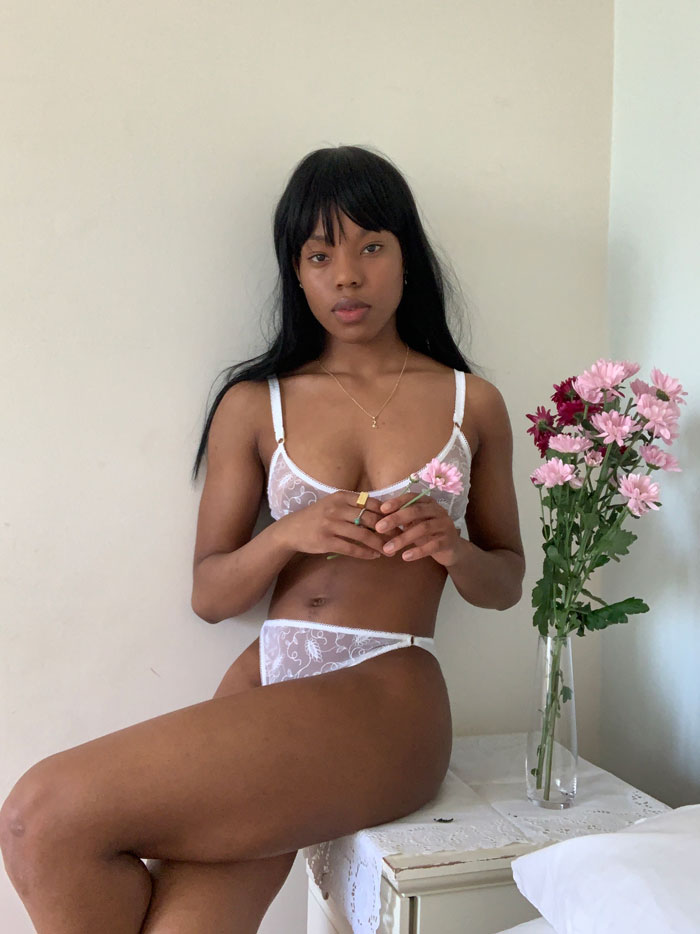
Aw, thank you! That’s really kind. We are very grateful to our customers and the support we have had over the last couple of years since we launched. It’s really cool to see people’s amazing support for small businesses and an increasing number of consumers that really care where they are buying from these days.
We love the idea of taking something that was going to waste and creating it into something beautiful, but the problem is, there can often be as little as seven meters on the roll.
Has the widespread popularity challenged your approach to sustainability? If so, in what ways?
It definitely has in some ways… mainly from a fabric perspective, as the majority of fabrics we source are from surplus rolls and materials. We love the idea of taking something that was going to waste and creating it into something beautiful, but the problem is, there can often be as little as seven meters on the roll.
As we have grown, not all of our customers that want a specific design are able to purchase it in time before their size has sold out. As the fabrics are one-offs we are unable to replicate designs.
Our values will never change and creating underwear that is kind to the planet is our priority so for us it’s just about finding more creative ways to source larger quantities sustainably. We have a really exciting idea which we are currently exploring but is not confirmed yet so hopefully we will be able to share it with you soon.
And hold that pose for me! The ‘Disco Leopard’ set is created entirely from deadstock fabrics and materials
Your brand is the example that sustainability can be sexy. Can you tell us how you achieve that?
For us, it’s about being transparent with our customers at all stages of the creation process and showing them how our practices are sustainable. From how we source the fabrics, to the quality and skill that goes into making our underwear. If during this process you can prove to them that style and design isn’t compromised, then I think for them it is the dream combination.
We think it’s important for women to see images as relatable and not intimidating to look at. All women are beautiful and deserve to feel sexy and see themselves represented.
As a lingerie brand, you’ve championed a variety of representations of women’s bodies in your imagery. Why do you feel this is important in the storytelling of your brand?
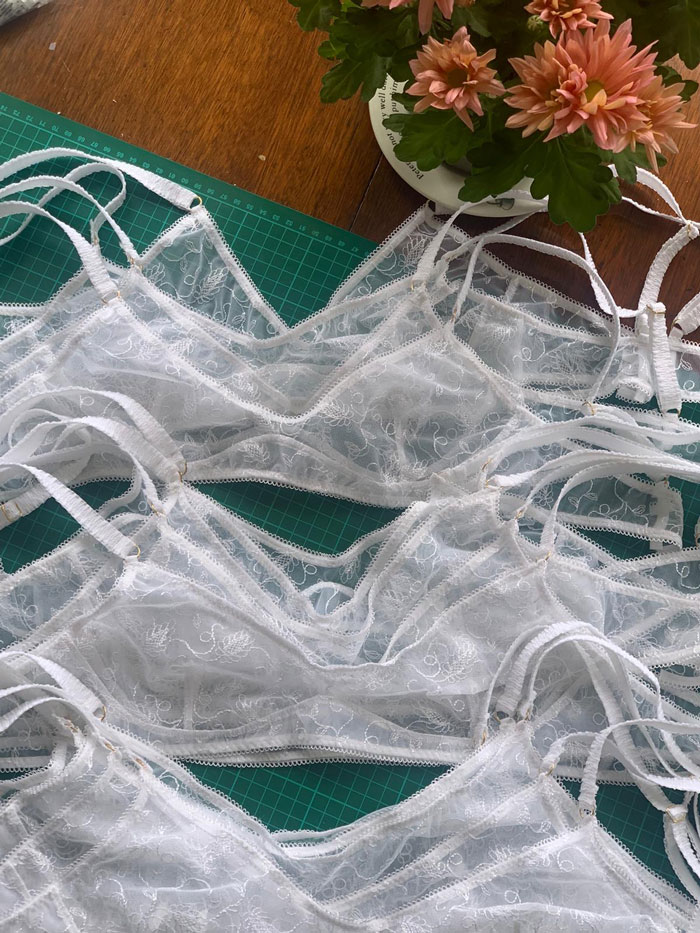
For us the main importance is showing real women and a diversity of women. No photoshop, airbrush and high-gloss campaigns and just celebrating women as they are. We think it’s important for women to see images as relatable and not intimidating to look at. All women are beautiful and deserve to feel sexy and see themselves represented.
This links to the fact that, importantly, the sustainable fashion conversation is increasingly linked to the topic of size inclusivity. How are you taking that on?
For us, as many women in all different shapes and sizes wearing our underwear has always been the dream. The last thing we want is someone who loves our designs but can’t purchase our underwear as we don’t have her size.
What is difficult about sizing is the cost of development involved. Larger sizing requires different elastics, straps, support, fits, grading – everything pretty much.
We are having to introduce more sizing slowly and incrementally in order to make sure financially it works for us. For example, in our latest collection we introduced a larger bra and knicker size. Small steps but we will get there.
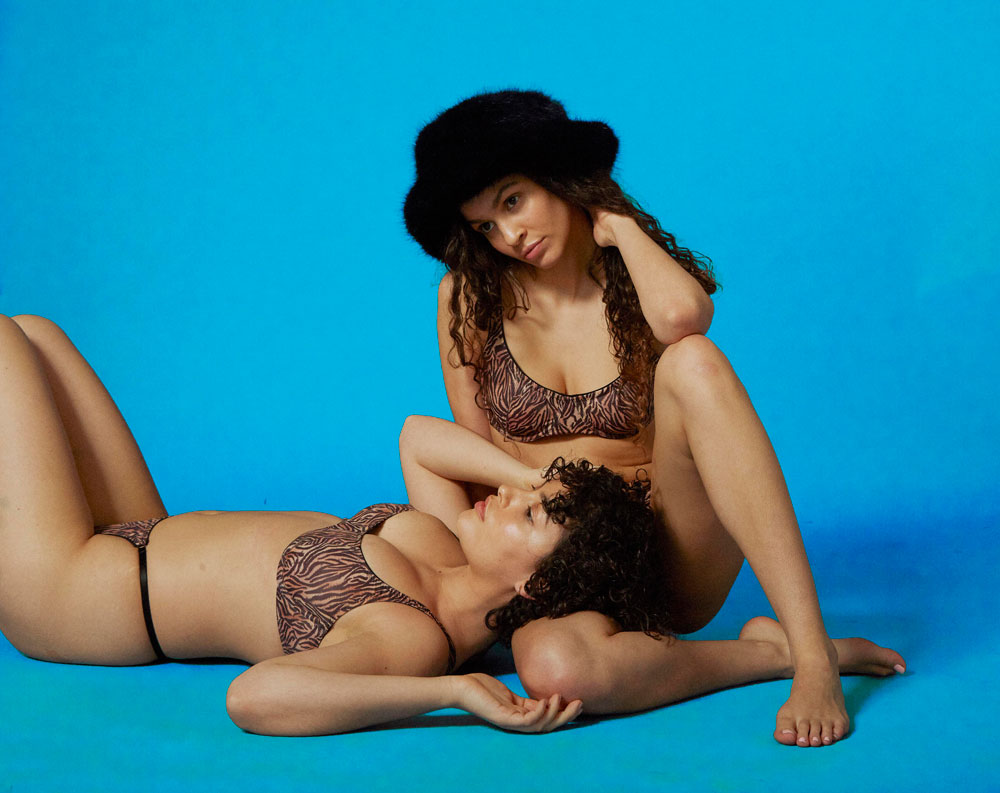
The last thing we want is someone who loves our designs but can’t purchase our underwear as we don’t have her size.
The fashion industry has been hit hard by COVID, but it feels like small brands were widely championed by the industry for the first time in a mainstream way. What lessons have you learned during the pandemic?
It has shown us how incredibly loyal our customers are, and that having values that align with theirs is everything.
It’s really cool to see small, ethical businesses be championed in this time. We think it goes to show that by acting consciously, treating your customers, suppliers and everyone around you well, they will always try to help you out and support you where they can.
We have been so overwhelmed with our customers, the press and everyone’s support during this time and can’t imagine how we would have survived without it.
It’s really cool to see small, ethical businesses be championed in this time.
Can you tell us what we can expect next from Fruity Booty?
We are focusing on the near future more at the moment as things have been changing so quickly at the moment… but we do have a S20 collection coming out, that we are aiming to launch mid-July which has not yet been seen by anyone. We have spent over 18 months working on this collection and it is probably our favourite collection yet – we can’t wait to show you!
To keep the series going, can you please recommend a small sustainable brand that you know/admire/want to champion?
Maison Cleo – Marie Dewet (the founder) is a huge inspiration of ours and her 100% transparency in her and her mum’s clothing label is incredible. Would highly recommend people looking at her beautiful pieces.
Isabel Mundigo-Moore (@mundigomoore) is a London-based fashion writer and theorist. She is interested in reframing narratives around sustainability, including refocusing materialism on the material, and caring about clothing as an act of love. Read all of Isabel’s pieces here.


